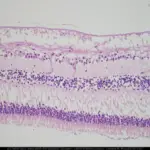Huntington disease is a rare, inherited disease that causes the progressive breakdown of nervous cells in the brain. This disease causes changes in the central area of the brain, which affect movement, mood and thinking skills.
What is the Pathology of Huntington Disease?
Etiology: The cause of Huntington disease is a mutation in the gene for a protein called huntingtin.
Genes involved: A single defective gene on chromosome 4. This defect is dominant so whoever inherits it from a parent with Huntington’s will eventually develop the disease.
Pathogenesis: The sequence of events that lead to Huntington disease is repetitive expansion of CAG that results in aberrant huntingtin protein.
Histology: The histology associated with Huntington disease shows neuronal loss, atrophy, and gliosis of the caudate and putamen beginning in the anterior medial caudate.
How does Huntington Disease Present?
Patients with Huntington disease are typically between 30-50 years. Males and females have the same risk of inheriting the disease. The symptoms, features, and clinical findings associated with Huntington disease include depression, difficulty concentrating, depression, personality changes, and involuntary jerking.
How is Huntington Disease Diagnosed?
Huntington disease is diagnosed by history and physical exam.
How is Huntington Disease Treated?
Huntington disease is not curable. Medications may lessen some symptoms of movement and psychiatric disorders.
What is the Prognosis of Huntington Disease?
The prognosis of Huntington disease is poor and disability gets worse over time.



